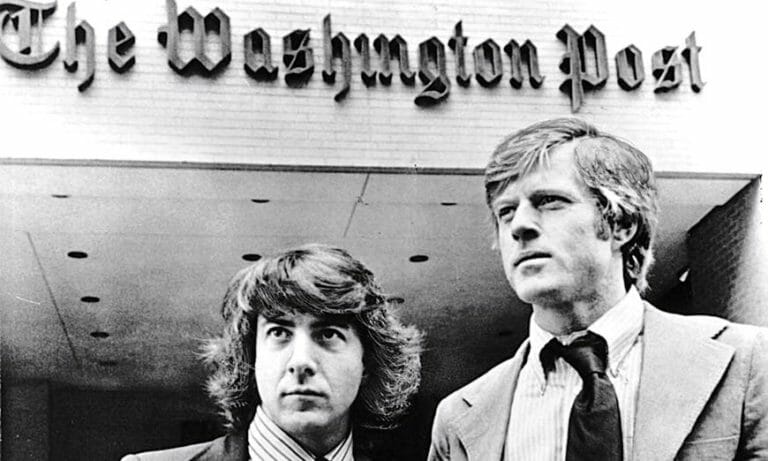By Eric Owusu · March 27, 2015

Usually people watch movies to immerse themselves in worlds that don’t involve the problems of the real world, one of which is politics. But the best movies often use the least fun parts of our reality to make statements and tell stories that inspire audiences. Tony Kushner’s screenplay for Lincoln does just that, intricately conveying President Lincoln’s mastery of political maneuvering to end a bloody war and end slavery.
There are several well-written screenplays that produced great films that involve politics. Bulworth, All The President’s Men and The Iron Lady all deserve a thorough read. In this article, I’ll use Lincoln to show how to use aspects of politics in a screenplay.
Establish Your Players & Their Stakes
Lincoln had the luxury of using one of the most famous figures in history as its title character and protagonist. But the screenplay still introduces him, his advisors and his political adversaries early on and as they appear. The audience is told through dialogue that Lincoln wants to ensure that his Thirteenth Amendment is passed soon and that he helps end the Civil War.
In scenes where Lincoln’s advisors track down congressmen to secure their support, we learn who is for and against Lincoln’s endeavors. Kushner uses wit, humor and tension to get the audience invested in what, on Capitol Hill, is usually boring business in Washington. He shows through Lincoln’s anecdotes why he wants to make sure slavery stays abolished and for the war to end as well as having Lincoln’s political opposition say what different things they want to have happen and why. When crafting your politic-infused screenplay, be sure to introduce the audience to their heroes, villains and what they’re fighting for.
Show Their Opponents & Their Motivations
In politics, the battle dynamics are different than they are in good-versus-evil battles in, say, The Lord of The Rings. The people battling head-to-head in politics don’t necessarily represent good or evil or hate each other, but they are each other’s opposing force. In Lincoln, the president’s opposition is the Democratic congressmen who want to impede his agenda. They don’t necessarily hate each other, but they do believe strongly in their respective stances on the war and slavery.
The Democrats serve as Lincoln’s opposition and they are especially interesting because they voice their concerns, why they oppose Lincoln and what beliefs they have that we know are not the same as Lincoln’s. When writing your political screenplay, give the antagonists a sense of purpose, intention and logic as they do battle with your heroes. It makes for intriguing conflict when the audience sees that there is a rationale and method behind your protagonist’s ambitions and their opposition’s, too.
Have The Protagonist Experience Inner Conflict
There are moral rules Lincoln is compelled to abide by, since he is fighting a moral battle against slavery. In order to drum up support for the ratification of his amendment, he gets his agents to offer Democrats who will lose their government jobs if they help him attain his goals. He flirts with the idea of bribing them, but ultimately chooses against it even though it may have had a better chance at succeeding. We also see Lincoln deal in technical truths, dispelling a rumor that peace is on the horizon independent of his efforts, going on the belief that the agents of such peacemaking objectives weren’t actually around. These examples show Lincoln’s inner conflicts and intentional efforts to not be a tyrannical president. Be sure to show your political protagonist battle with moral decisions, to show their humanity and the difficulty with which they are operating.
Convey “The Message”
Lincoln was penned not only to be a representation of a larger than life political tactician, but also to show how difficult it was for an embattled political administration to change the course of a nation for the better. Lincoln did what was morally right even though it wasn’t easy. In your political screenplay, include a message for the audience to take away from it. Give them a reward to leave with after reading your screenplay so that it’s not just them seeing a dramatized version of a typical day on C-SPAN.